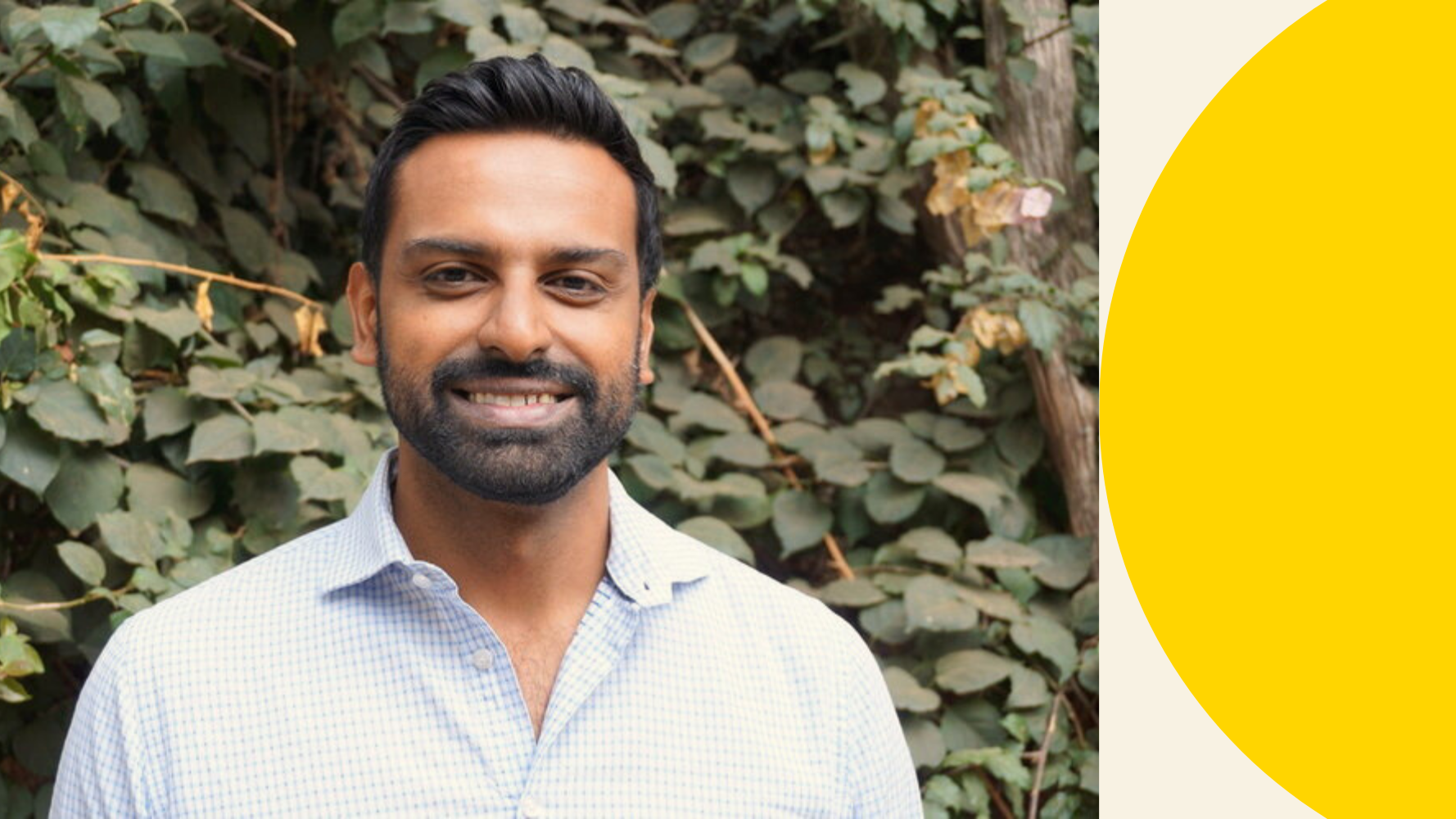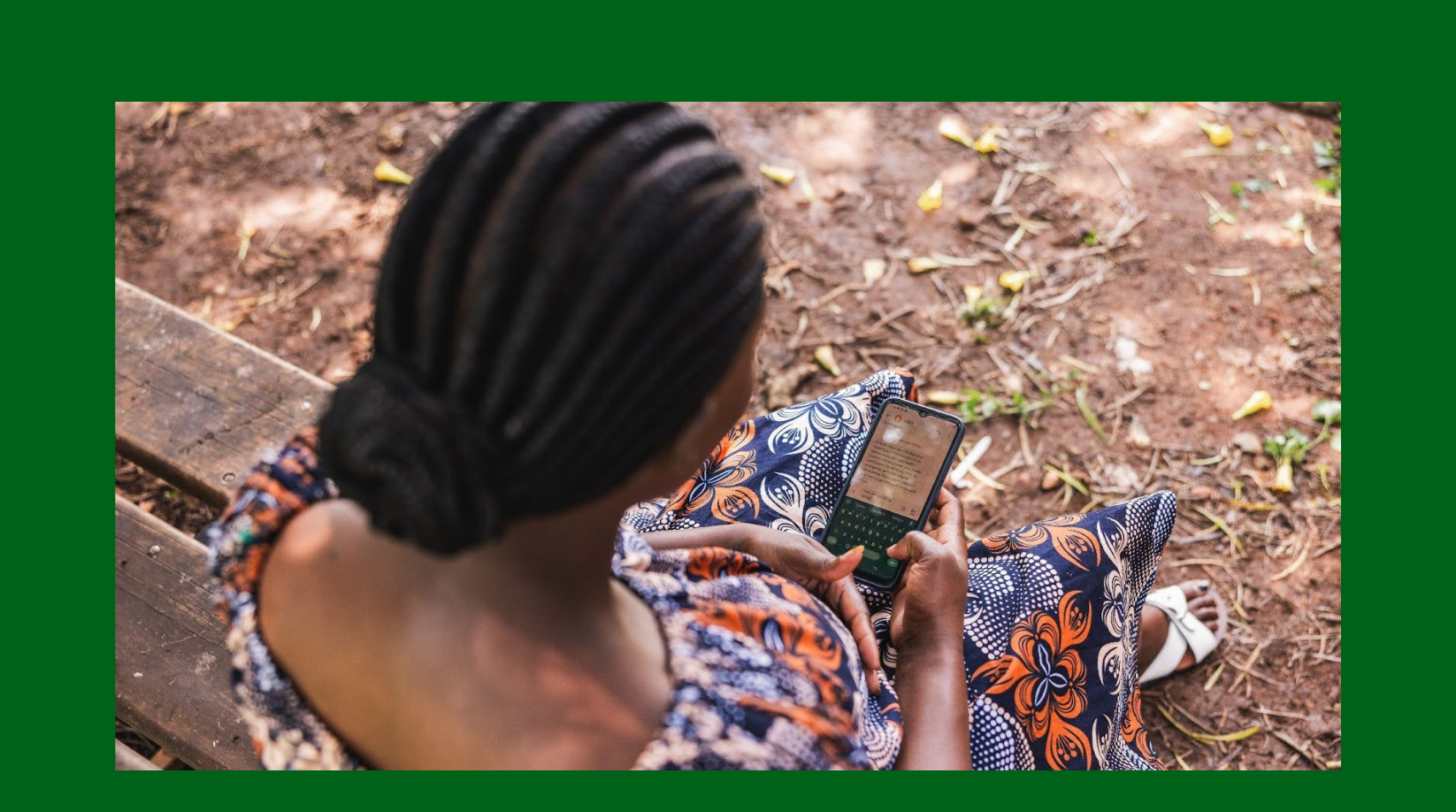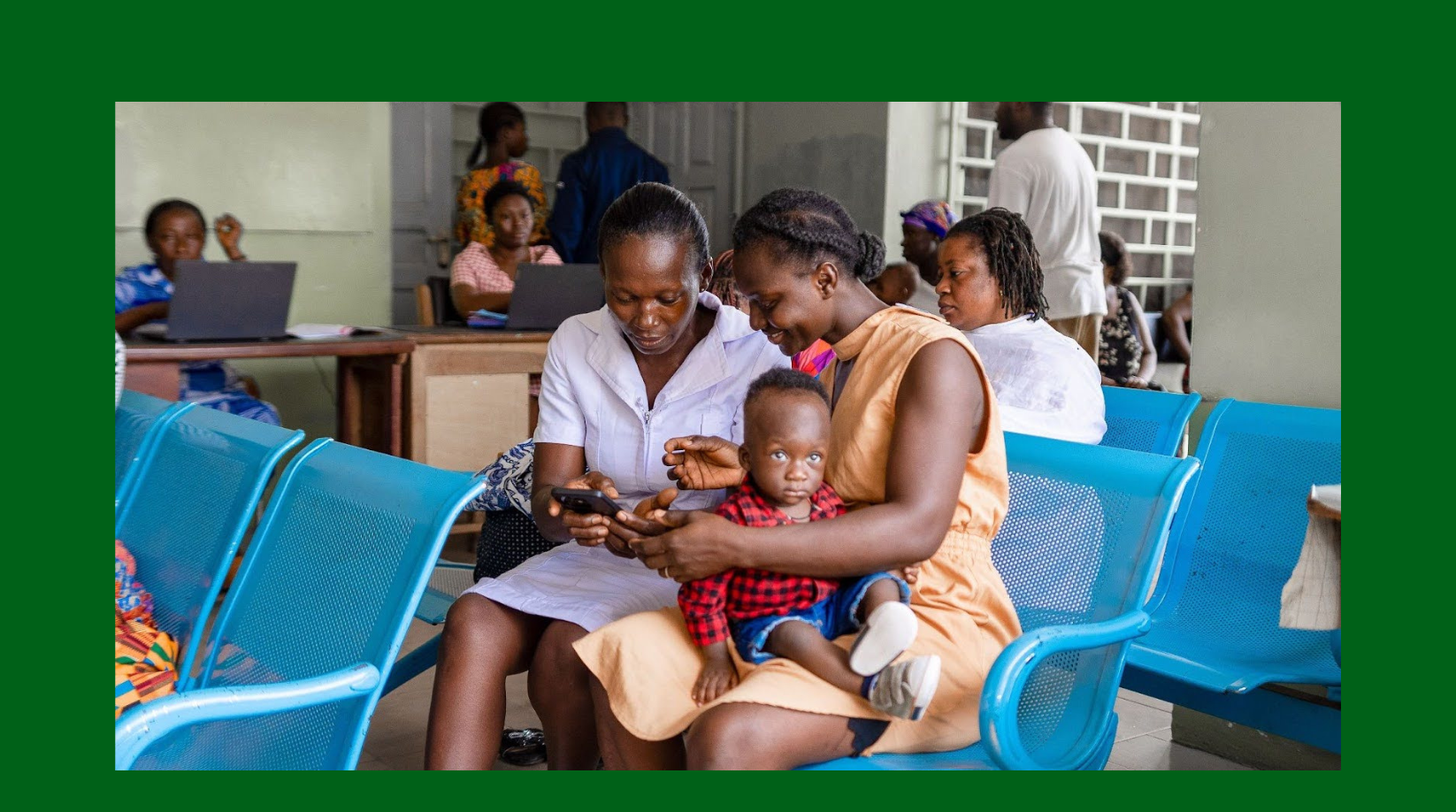Sathy Rajasekharan is Transforming Maternal Healthcare With AI

Written by the Patrick J. McGovern Foundation team.
Meet the leaders who are putting AI to work for good. "Humans of AI for Humanity" is a joint content series from the Patrick J. McGovern Foundation and Fast Forward. Each month, we highlight experts, builders, and thought leaders using AI to create a human-centered future — and the stories behind their work.
Quality healthcare saves lives. But in Kenya, a third of preventable maternal deaths occur because women are not able to access it in time. Sathy Rajasekharan is showing us that AI can help by alerting at-risk mothers to pregnancy and postpartum warning signs and connecting them to critical care sooner.
As the Co-Executive Director of Jacaranda Health, Sathy saw firsthand that digital health products can help bridge the care gap by providing timely advice to new and expecting mothers in resource-limited communities. He soon began exploring ways to leverage AI to improve service quality and scale the impact. He and his team built an AI-powered platform, PROMPTS, that relies on SMS messaging to triage and answer user questions in real-time, and initiate referrals for a higher level of care when necessary. PROMPTS is rooted in agency and empowerment. When mothers know when and where to seek help, they can better protect themselves and their babies.
To date, PROMPTS has enrolled over 3M women in Kenya and saved countless lives. What began as a commitment to ensuring timely care for mothers has led to notable breakthroughs in Jacaranda’s understanding of maternal health. Now, they envision AI as a tool to expand the capacity of health workers around the world.
We recently spoke with Sathy to learn more about how his team is using AI to transform maternal healthcare in Kenya, Eswatini, Ghana, and Nigeria.
How did your journey inspire you to explore AI for humanity?
Science and technology have always captivated me. My early work in life sciences focused on drug and diagnostic discovery, but the slow pace of impact, especially for vulnerable populations, was disheartening. I was born in a government hospital in Zambia, and the fact that I was lucky enough to survive complications at birth was part of my narrative growing up. This experience instilled a deep conviction that access to good healthcare shouldn't be a matter of luck. So, I returned to sub-Saharan Africa to work in global health and development and have dedicated much of my career to working with organizations, including Jacaranda, that advance drugs, diagnostics, and technology to bridge the healthcare gap for the most marginalized communities.
At Jacaranda, we didn’t initially set out to use AI for health: our vision is to provide the highest quality of care to millions of mothers in Kenya. We started with a digital health service to support mothers’ health journeys, but quickly realized that emerging technologies like AI would play a crucial role in our ability to scale effectively. We then asked ourselves how we could offer an engaging and informative service that simultaneously identified the most vulnerable mothers and infants. AI gave us a toolkit for offering a high-quality, general service for all clients, while simultaneously connecting patients to urgent and life-saving support when necessary.
What are some of the most promising AI applications for global health equity?
Multimodal AI, i.e., text, voice, and vision. In the Global North, we’re on the cusp of being able to speak to a virtual physician who can accurately review lab test results. But these applications can also be adapted for resource-limited settings. As the technology becomes more accessible and cost-effective, it will have a significant impact on the lives of those who are marginalized and underserved.
At Jacaranda, we’ve developed a platform called PROMPTS, which leverages AI to provide stage-specific guidance to pregnant women and new mothers. The platform operates through very simple text messages so that anyone can access the information for free. We receive ~10K questions a day from mothers, ranging from the benign (“Can I eat avocados during pregnancy?”) to the urgent (“I’m bleeding, what should I do?”). AI helps us answer all these questions with validated responses, while triaging urgent messages for rapid response by human clinical agents.

A PROMPTS user shares her questions via SMS for rapid, AI-generated responses. (Credit: Jacaranda Health)
Which safeguards and considerations guide your development and deployment of patient-facing AI products?
First, do no harm. This means figuring out all the ways that AI can get it wrong and building safeguards that address these issues. With better training, the technology we’ve developed has been able to minimize basic errors, such as misinterpreting a patient’s concern. However, AI can also provide contextually poor responses that are harder to catch. For example, when a mother in Kenya says “my baby is not playing,” she’s referring to a lack of fetal movement, not a newborn milestone (as is often interpreted by an AI agent with no context-specific training). As we scale, we remain vigilant for low-frequency errors that reflect the original biases of AI training data to Western and Global North populations.
When we built a triaging system using AI, we also made sure that there was a human in the loop to verify the guidance provided by AI. Once we were confident the AI model was performing as well, if not better, than a human, we allowed a more automated response process. Today, we continue to invest in audits and periodic reviews to protect the patient and reduce the risk of errors.
What core values drive your unique vision for impact in an AI-driven future?
AI is most powerful when it augments, rather than replaces, human capacity. We do not have enough health professionals to support the challenges faced by the underserved around the world. AI allows us to raise the efficiency, productivity, and life-saving capacity of human beings so that we can increase access to quality healthcare.
Today, with the 10K daily questions we receive from mothers through the PROMPTS platform, AI helps us instantaneously determine the ~5% that need urgent additional support, enabling a human being to respond to them within five minutes.

PROMPTS connects users to additional care when needed, leading to healthier mothers and babies. (Credit: Jacaranda Health)
"AI is most powerful when it augments, rather than replaces, human capacity."Sathy Rajasekharan, Co-Executive Director, Jacaranda Health
Which visionary leaders, philosophies, or movements give you hope for a more human-centered AI future?
I often draw inspiration from the life of Nelson Mandela – in particular, his ability to adapt to changing times while still holding true to principles of justice, equality, and human dignity. Even ChatGPT tells me that Nelson Mandela believed in the power of transformation, dialogue, and collective progress, so he’d likely see AI as a tool that could either entrench inequality or help overcome it, depending on how we use it.
What is your 7-word autobiography?
Learning, building, seeking truth through meaningful impact.
Stay tuned for next month’s Humans of AI for Humanity blog, featuring Visilant's Jordan Shuff and Nakul Shekhawat. For more on AI for good, subscribe to Fast Forward’s AI for Humanity newsletter and keep an eye out for updates from the Patrick J. McGovern Foundation.